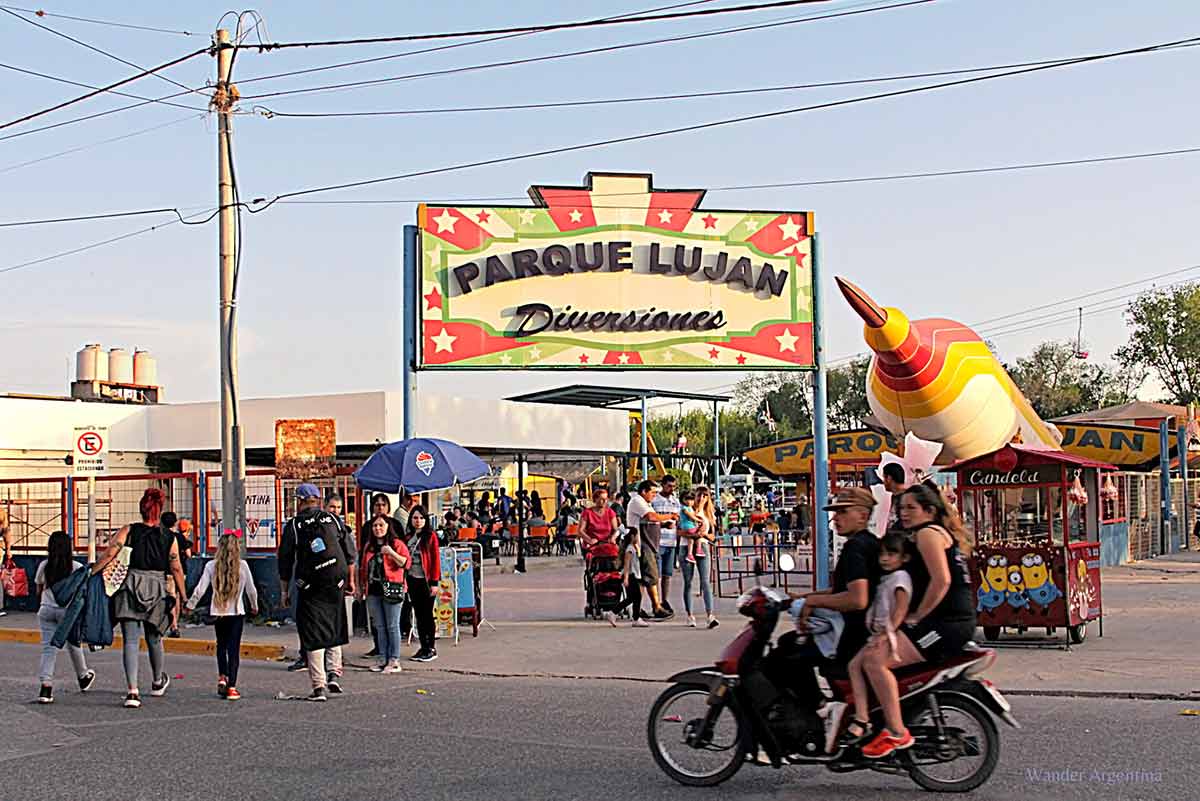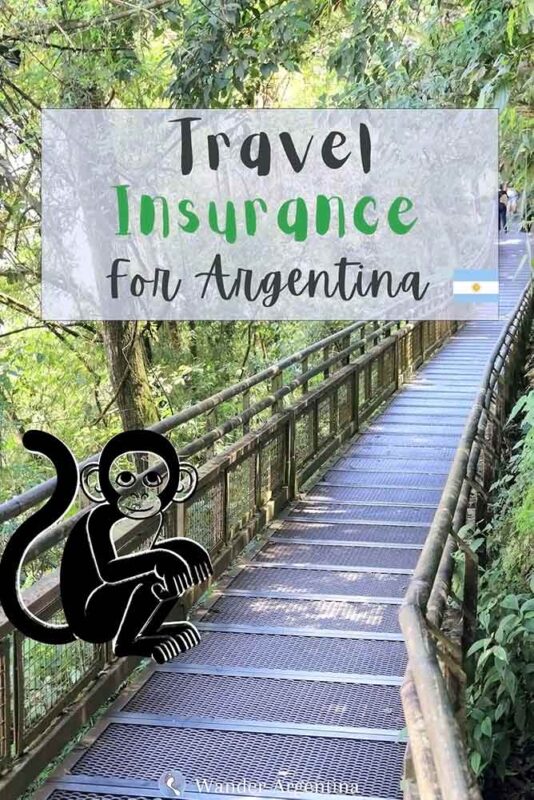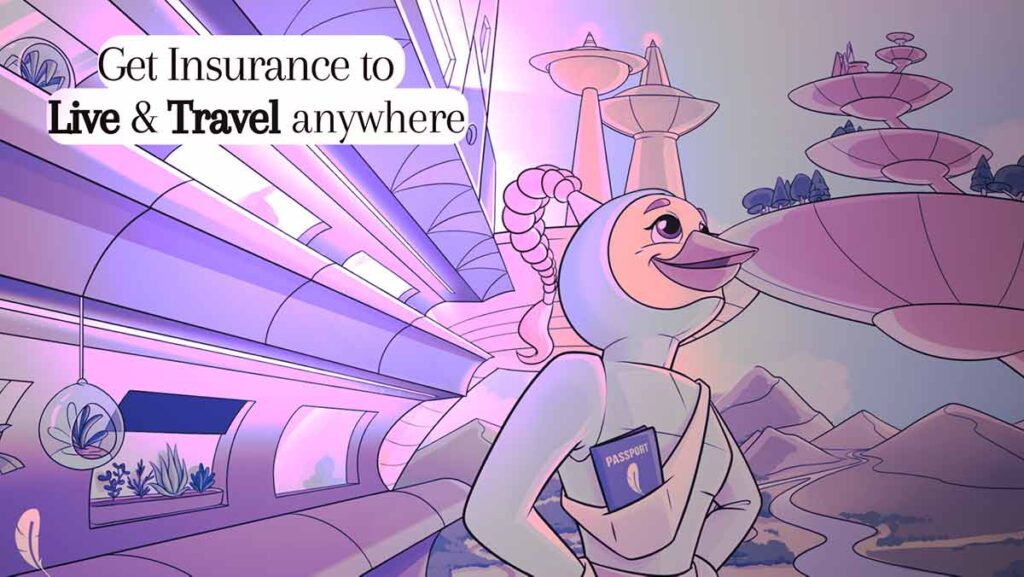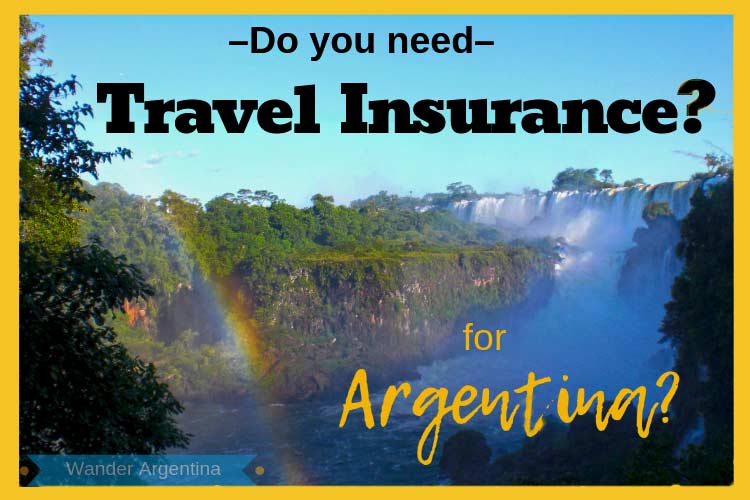Travel insurance is a great idea when you are setting off on a great adventure.
This is true even for destinations like Argentina, which is blessed with universal public healthcare coverage for all residents and visitors.
While Argentina’s public system ensures access to basic medical treatment, travel insurance can still be valuable in providing a higher level of care.
Coverage for specialized treatments may not be offered by the public system.
The Broader Benefits of Travel Insurance Beyond Health
Beyond health coverage, travel insurance offers valuable benefits that can protect you from a range of unexpected situations.
It can safeguard you from trip cancellations, delays, lost or stolen belongings, and other complications that can derail your travel plans and cost you money.
Having that financial safeguard in place allows you to travel with confidence to focus on enjoying your travels rather than worrying about what-ifs.
During the pandemic, in an unprecedented move, Argentina required Covid insurance for visitors to enter the country. It was a pre-emptive measure to keep the system from getting overwhelmed during the health crisis.
Now, travel insurance is no longer required to enter the country but it’s a small investment that can provide major peace of mind for adventurous travelers.
Understanding Argentina’s Amazing, if Under-funded Universal Healthcare
The once laudable public health care in Argentina is overburdened.
Health insurance was required for visitors for the first time during the pandemic to prevent foreigners from clogging up the system further.
It proved to be unnecessary as few travelers had serious cases and anyway, vaccines were given out freely and abundantly — even to visitors. Even now — anyone eager for a booster can head to any local vaccination center to get a jab for free.
Argentina’s Pandemic Response
Argentina’s response to pandemic was marked by srark contrast: a strict lockdown in the early stages, followed by a swift shift to an open approach.
Argentina was among the first countries in Latin America to implement a nationwide lockdown in March 2020.
This involved stringent restrictions on movement, business closures and police stopping people on the street to ensure they were only going to purchase items, and even a few arrests of citizens who dared to take a walk alone.
At least 91% of the country got at least one shot, which were offered free to citizens and non-citizens in public health centers.
Since children don’t live in homes that have a computer and internet access were unable to participate in remote classes and were falling behind in school.
The public grew weary of restrictions by the end of 2020.. The government faced pressure to reopen the economy. With elections approaching, the administration was keen to portray an image of normalcy and economic recovery.
Argentina reopened its borders to international travel relatively early and was one of the first in the region to allow unvaccinated tourists to enter.
Argentina’s universal healthcare allowed for high vaccination rates, with 91% of the country receiving at least one shot, although many were the traditional non-MNRA vaccines produced by China and Russia.
Doctors also prescribed vitamins such as C and Zinc and a certain noble-prize-winning medication that the U.S. FDA referred as ‘horse paste’ for acute Covid Symptoms.
Post-Pandemic Health Trends
Argentina experienced almost one-third less mortality from Covid than the United States, with a COVID-19 mortality rate of 2.4 per 1,000 compared to the United States’ 3.3 per 1,000.
Interestingly, in the past few years, Argentina’s overall average age of mortality surpassed that of the United States.
This is despite the fact that Argentina’s citizens are known to have quite a few of what are considered ‘unhealthy habits’ such as eating ungodly amounts of red meat in one sitting, enjoying the always affordable nectar from the wine country, high sodium intakes and low rates of usage of sunscreen.
It’s also notable that this is despite the fact that one in four people smoke cigarettes in Argentina, while only one seven smoke in the United States.
So while the average Argentine now lives longer than the average American, some factors to consider are the relatively small number of drug-related deaths in Argentina which has a significant impact on the average ave of mortality in the U.S.) and universal access to healthcare.
Universal Health Care — For Tourists Too!
Yes! Argentina has universal healthcare, which is covered by a 21% IVA (value-added sales tax).
Visitors also can seek medical care in public hospitals or community health facilities at no cost.
Both public and private healthcare professionals in Argentina tend to be excellent, but public hospitals are strained, and not really places where you want to spend a lot of time if one has a condition that requires in-patient care.
A visit to public hospitals around the country will reveal that facilities are dilapidated, sometimes stray animals from the area hang out in the hallways (animal lovers don’t mind, but it’s not exactly hypoallergenic) and cigarette smoke seeps from behind closed doors of certain doctors offices (believe it or not!)
Costs for prescription medicines or medical devices such as crutches or an arm sling the responsibility of the patient if they have no private or travel insurance.
Public hospitals do not provide things such as sheets and towels for patients and there are often long waits to be seen by a medical professional.
Many foreigners just go to private doctors to not burden the system and not have long waits.
Paying for Peace of Mind
Even though Argentina is advanced in terms of medicine for the region, there are some reasons to consider taking out a travel insurance plan

Medical Emergencies: While public healthcare may provide basic coverage, travel insurance offers more comprehensive medical coverage.
It can cover expenses such as emergency medical treatments, hospitalization, ambulance services, and medical evacuation — in other words, the best possible care in case of unforeseen illnesses or injuries.
Non-Medical Emergencies: Travel insurance also covers non-medical emergencies, including trip cancellations, delays, or interruptions.
If a trip needs to be cut short due to unexpected events such as natural disasters, political unrest, or personal emergencies, travel insurance can cover reimbursement for prepaid expenses and additional costs incurred.
Baggage Loss or Delay: Travel insurance typically covers loss, theft, or damage to your luggage and personal belongings. It can provide compensation for necessary items you need to purchase during baggage delay as well.
Travel Assistance: Travel insurance includes 24/7 travel assistance services.
These services can help you with travel-related emergencies, such as locating lost documents, finding local medical facilities, or arranging emergency transportation.
Knowing that you have coverage for unexpected situations allows you to relax and enjoy your trip without worrying about potential financial burdens that may arise.
Digital Nomad/Remote Worker Travel Insurance
Remote workers, digital nomads, or ‘slow travelers’, on a journey of a longer periods than just a few weeks often choose Safetywing — a well-known and reliable travel insurance option.
Their basic plan averages $42 a month for those under 39, with a $250 deductible and a $250,000 max limit for those between the ages of 18-39.
Short-term Travel Insurance: Get a Quote with World Nomads
For short-term travel insurance, World Nomads is a well-established travel insurance company many veteran wanderers procure for their vacations.
They have 24-hour emergency assistance and cover residents from 150 countries.
You can purchase, extend your policy and make claims, even while traveling. Their plans also cover lost, stolen or damaged baggage.
You can be assured all this, because it comes straight from their website! Check out the cost of a plan.
Loss of Property Insurance
It is more likely that visitors will lose bags, be a victim of theft or incur some other material loss on a trip to Argentina than have a health emergency.
That is when vacation insurance protection against theft or lost baggage can be a godsend.
Check out this viral video from a few years ago — a Canadian tourist on a bike tour through La Boca (not on one of Wander Argentina’s tours, we are happy to report!) got held up at gunpoint while wearing a GoPro camera.
This shouldn’t scare you — it’s important to note that this happened because the visitor had expensive gadgets on full display in an area known for this type of crime.
In this case, it’s not inconceivable that the clueless Canuck didn’t want to give up his equipment because he didn’t have travel insurance that covered his belongings.
No material belongings are worth your life, so give up the goods in this situation and rely on travel insurance against theft to give you peace of mind.

Travel insurance or not, even locals don’t recommend carrying anything expensive or shiny in La Boca.
Although it has a cute tourist area, La Boca is probably the most dangerous neighborhood you will visit while in the country.
We recommend that you stay on the beaten path here, in and around Caminito, or take a guided tour (with a responsible company).
Soccer fans may also want to do a tour of Boca Junior’s stadium, La Bombonera here.
But it’s better to see Argentina’s most popular team, La Boca at a live game.

Check out upcoming ⚽️ games 🔜
More Articles about Safety in Argentina
• Safety in Buenos Aires: Travel Tips for Argentina’s largest city
• Common Argentine Scams : Make sure to learn about the Mustard Trick
• Safety for Female Travelers: Tricks to Stay Safe on the Road

